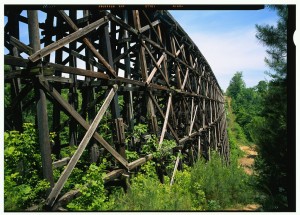
NOTE: As of Fall of 2016, the Altacs in Academe Carolina Seminar has ended due to the departure of most of its leadership from UNC.
*****
We thank the Carolina Seminars program and its director, Dr. Andy Perrin, for funding for a three-year (2014-17), problem-based seminar to explore from the perspective of “altacs in academe” a set of interlocked discourses around the changing demographics of the professional higher education workforce — in particular, the changes in the faculty workforce that are related to the rise of the “alternate academic” or “altac” career track for PhDs.
These discourses (and the issues that underlie them) are daily elaborated across the higher education press–for example in the Chronicle of Higher Education, Inside Higher Ed, and Women in Higher Education–and have begun to expand into the mainstream with articles on adjuncts, post-PhD disillusionment, and quitting academe appearing in major publications such as the New York Times and The Atlantic. In recent months, calls have come for Congressional attention to the rise of adjuncts as a modern labor rights issue. Within the past two years, the Mellon Foundation, the American Historical Association and the Modern Language Association have taken up the graduate preparation piece of the conversation, launching initiatives on career outcomes and graduate education reform. The tangle of issues regularly generates vigorous, sometimes angry but always passionate debate in the Twittersphere and blogosphere.
Our Carolina Seminar will produce a series of conversations that launch from the observation that the growing salience of altac careers for PhDs has revealed some ways in which current discourses around the higher education workforce are insufficiently nuanced, elaborated, integrated, problematized and interrogated.
“Altac” refers to PhDs employed within the university in roles other than full-time faculty positions. Neither “adjuncts” nor “faculty,” but still “scholars,” while occupying positions commonly labeled (and sometimes derided) as “staff” or “administrators,” altacs find themselves struggling to define their hybrid roles. Yet as fewer and fewer well-paid, full-time faculty positions are available to absorb the PhDs who wish to remain in the academic orbit, and as administrative ranks continue to expand, it will become more and more important for universities to consider how this population fits into academic workforce structures and categories that were designed for other realities in other times. Such a consideration necessarily must begin with careful exploration of issues such as:
- the changing character of faculties (the imbalance between full-time faculty positions and PhDs, and the rise of non-tenure-stream and contingent, or “adjunct” scholarly labor in particular);
- attempts to organize contingent faculty;
- a lack of clarity about the purpose of advanced graduate education (especially in the humanities and social sciences) in light of these changes;
- the consequent calls for reform in graduate education and career preparation;
- the growth in university administrative ranks; and
- how the university has been structured and what its future should or will look like (corporatized? casualized? engaged? entrepreneurial? vocationalised?).
Through presentations, readings, panels, and engagement with related national and campus discussions, we will theorize and articulate new ideas for conceptualizing the academic/scholarly workforce that are responsive to current and future realities, challenges and possibilities. We will ask whether university structures might be re-envisioned in ways that better accommodate these emerging realities and provide new bases for humane employment conditions for all scholars within the academy. Can historic tenure and faculty governance systems be re-imagined? Should they be? Could questions regarding tenure, faculty governance, “administrative bloat,” “adjuncts,” “fixed-term faculty,” and “altacs” be understood as points along a continuous spectrum of related concerns? Is there new insight and value to be gained by considering and discussing those issues together, rather than separately (as is usually the case now).
Possible Discussion Topics:
- What are the basic categories of analysis that inform the current discourse about the higher education workforce?
- Where did these framings and understandings come from, and how are those categories and terms deployed?
- What are the characteristics of the emergent “altac” discourse, and of the “altac” professional category?
- How does the altac perspective relate to these other larger predominant discourses about categories of labor within higher education?
- How can we understand and articulate the hybrid roles of altac professionals within the larger context of convulsive changes in the academic labor force that are largely framed as conversations about either “fixed-term faculty,” “adjuncts,” or “administrators”?
- What happens if one reads all of these terms and dynamics in terms of each other rather than as separate and distinct categories?
- Could the altac discourse help inform development of a new vision for scholarly labor that nurtures interconnection throughout this complex array of doctorally-trained professionals working across a spectrum of higher education activities?
- How are the nationwide trends in terms of scholarly labor force change playing out at Carolina?
- What are the problems with the altac formulation? What are its limitations? Is advocating adaptive strategies that embrace altacs tantamount (as is frequently implied) to acquiescing to a “neoliberal” collaboration with the forces bringing the decline or corporatization of American higher education?
- What are the major impediments (cultural and otherwise) to labor force change in higher education?
- How can conversations about contingent and altac labor compliment or complicate efforts to sustain the tenure system and faculty governance (as traditionally understood) in the face of financial and other pressures?
- How can altac perspectives inform conversations (going on mainly within the disciplines, at present) about the goals and purposes of graduate (especially doctoral) education?
Watch this space for information about upcoming events and opportunities to engage in dialogue around these issues.
